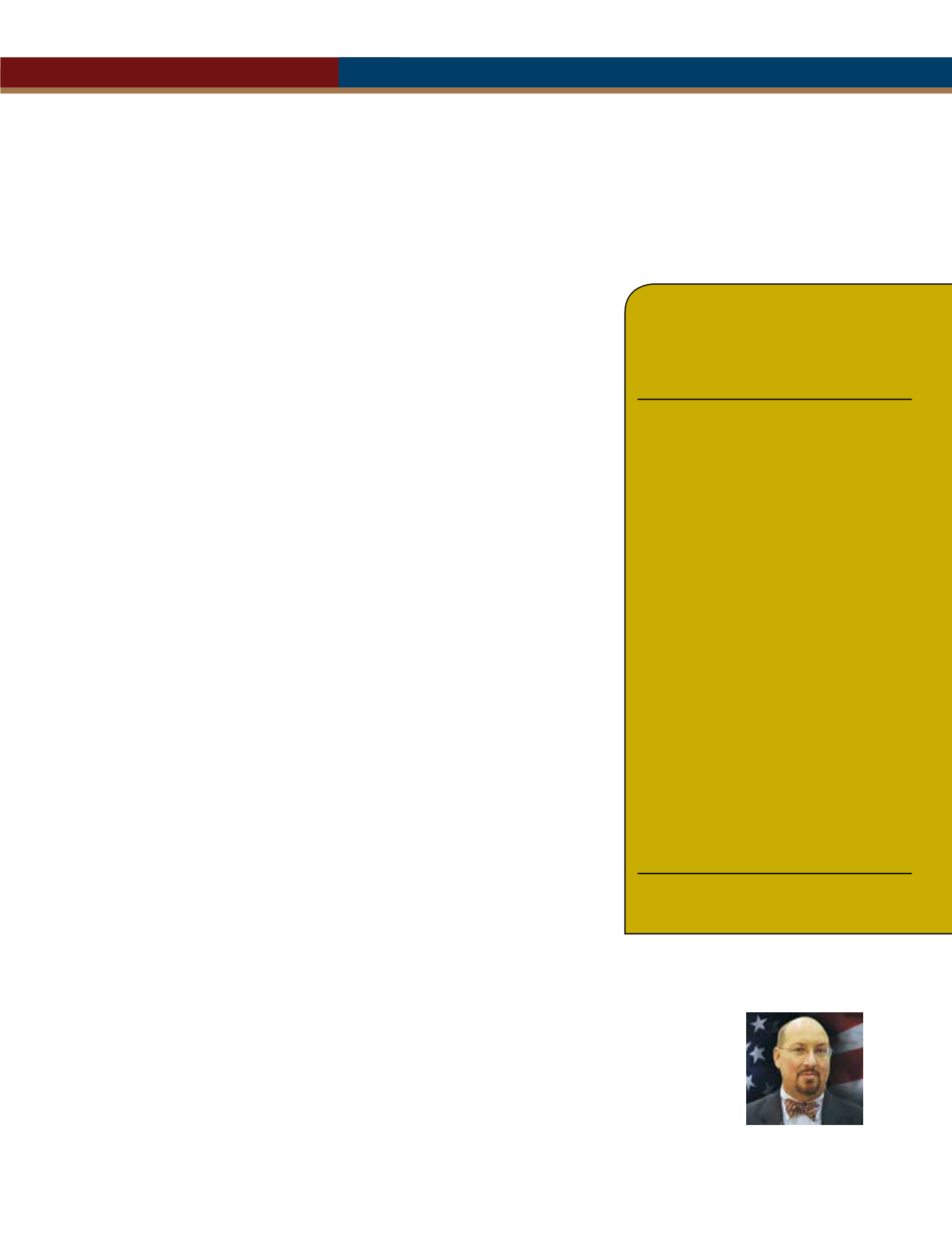

ogy to do the mandated testing did not
exist. In others, requests for lab time
backed up due to the constantly evolv-
ing and inconsistent requests for “new
data” made by FDA.
The real turning point, however, be-
gan in early 2018 and through the
spring of 2019. As the number of cigar
companies rapidly decreased from over
165 to about 50, the prediction of the
U.S. Small Business Administration be-
gan to unfold. Industry consolidation
accelerated, and brand owners began to
shutter. As a result, production levels in
Latin America were affected. Labor un-
rest in this economically and politically
sensitive region became an issue in elec-
tions, with diplomatic relations becom-
ing strained, as the impact of that day in
May of 2016 became readily apparent.
As consolidation and shrinking re-
shaped the industry, the retail sector
became adversely affected as well. Over
750 community tobacconists closed their
doors by October of 2019, with the major
urban markets having the most locations
for cigar sales. The impact on state and
federal tax collections was as predicted—
a shortfall ensued, causing state and local
governments to demand answers.
Then there were the consumers, the
patrons of those once-vibrant cigar
shops, local clubs and lounges. Choices
became limited; releases were scarce,
production became even more limited
and traditional releases marking mile-
stones or the availability of unique to-
bacco simply could not get through the
federal bureaucracy.
The outcry from all sectors of the in-
dustry again called for legislative action.
The governor of Florida demanded con-
gressional hearings, while the governors
of Pennsylvania and Connecticut called
upon their federal delegations to reverse
the 2016 regulations.
Within weeks, the Traditional Cigar
Manufacturing and Small Business Jobs
Preservation Act was reintroduced for
the sixth time. However, with the im-
pending 2020 elections, this time it not
only carried the support of the Florida
and Pennsylvania congressional del-
egations as the base, but with the elec-
toral significance of these two states, it
coupled with a dozen other states that
resoundingly endorsed the legislation.
On October 1, 2020, the president of
the United States endorsed the bill and
called for an executive branch review to
work toward revision of the regulations,
more in keeping with a common sense
approach to the 2016 rule. But was the
president’s action too late?
While the story above is all make-
believe, many facets of the narrative are
grounded in scenarios that are within a
hypothetical reality, depending on how
the recently issued federal regulations
on cigars is implemented if not ad-
dressed by the Congress or courts.
While we will not speculate on any
judicial action, the ability of Congress to
protect both the industry and your abil-
ity to simply enjoy a cigar is clear. They
must advance the exemption language
from regulations as adopted in April
2016 by the U.S. House of Represen-
tatives Appropriations Committee and
strive for a means to make that exemp-
tion permanent.
By this writing, there will be about
eight weeks left this year for Congress
to act. They need to hear from you, as
never before, that cigar manufacturers,
retail and distribution channels and you,
the consumer, deserve and demand that
premium handmade cigars should not
be subject to draconian federal regula-
tions that will assuredly alter the course
of cigar history.
We are asking for every manufac-
turer, retail tobacconist and consumer in
America to call their two United States
senators and members of Congress.Visit
their district offices, call the local office,
and call the Washington, D.C. office to
voice your disapproval of the cigar regu-
lations. Get your cigar brethren together
for a group call. Invite these politicians
to your local cigar shops and host a “Ci-
gar Town Hall.” Tell them who you are:
cigar voters.
Tell them to support H.R. 662, S. 441
and the actions of the House Appropri-
ations Committee. Call for exemption
and for “no funding for FDA actions
against premium cigars.”
Tell them you are watching, and will
remember on Election Day. We can as-
sure you that 2020 will be determined
by what happens in 2016.
J. Glynn Loope is
executive director
of Cigar Rights of
America.
CRA’S CIGAR CORNER
BY J. GLYNN LOOPE
CRA ISSUES
OPEN LETTER
TO PRESIDENTIAL
CANDIDATES
Cigar Rights of America has issued an
open letter to the U.S. presidential can-
didates outlining the economic and dip-
lomatic issues surrounding the proposed
regulation of cigars. The letter addresses
the economic foundation of the industry
in Florida, as well as the direct economic
relationship with states such as Penn-
sylvania, Connecticut, Nevada and Loui-
siana—all of which are significant in the
national political landscape.
The message by CRA to the candidates
also addresses the failure by FDA and the
presidential administration to undertake a
comprehensive economic impact analysis
of the regulations, as requested by the
mayors of Miami, Tampa and Las Vegas,
as well as Congressman Joe Courtney.
The letter also raises the issue of ad-
verse economic consequences for wom-
en- and minority-owned enterprises as-
sociated with premium cigars, in addition
to the vast consequences for relations
with Latin America.
A full text of the CRA message to the can-
didates can be found at
tobonline.com88
TOBACCO BUSINESS INTERNATIONAL
SEPTEMBER/OCTOBER 2016
















